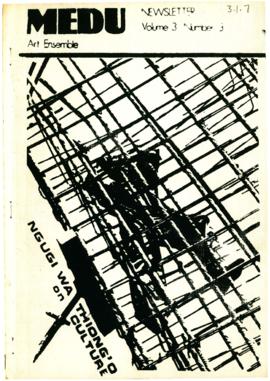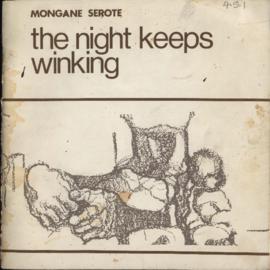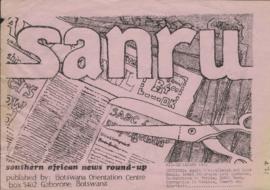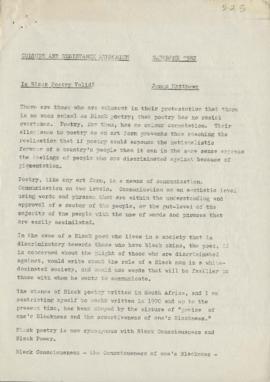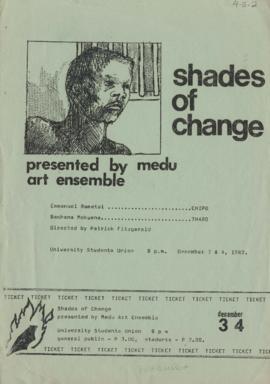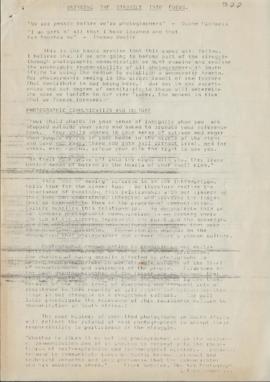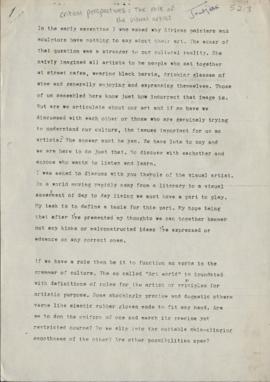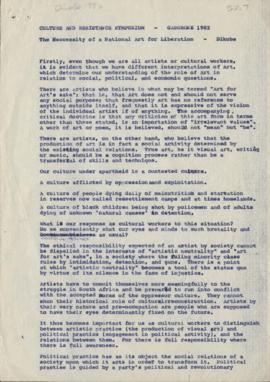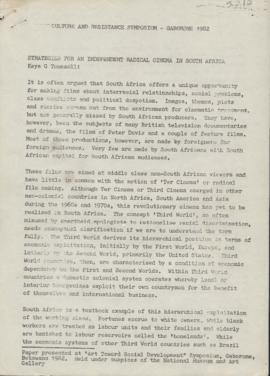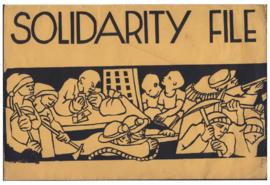Newsletter 1981, Vol. 3, No. 3, Ngugi wa Thiong'o on culture
- ZA MEDU MEDU-3-3.1-3.1.7
- Deelreeks
- 1981
Part of 3-MEDU NEWSLETTERS
What is the place of artists, cultural activists and writers in the struggle against Apartheid? This edition of the Medu Art Ensemble newsletter, the last of 1981, shares experiences of artists and their range of cultural activities. The issue consists of poetry, articles, short stories and book reviews. The first poem is about the silences imposed by Apartheid, composed by John Donne. Ngugi Wa Thiong'o's article on "Education for a national culture" focuses on the importance of understanding your background and culture, particularly in the context of a liberation struggle. It is certain that artists have a role to play in this process! A short story about "The New Place" by Mongane Serote focuses on an experience of forced removals and resettlement that many black South Africans faced. Front page graphic by Mike Kahn on silkscreen.
Zonder titel



